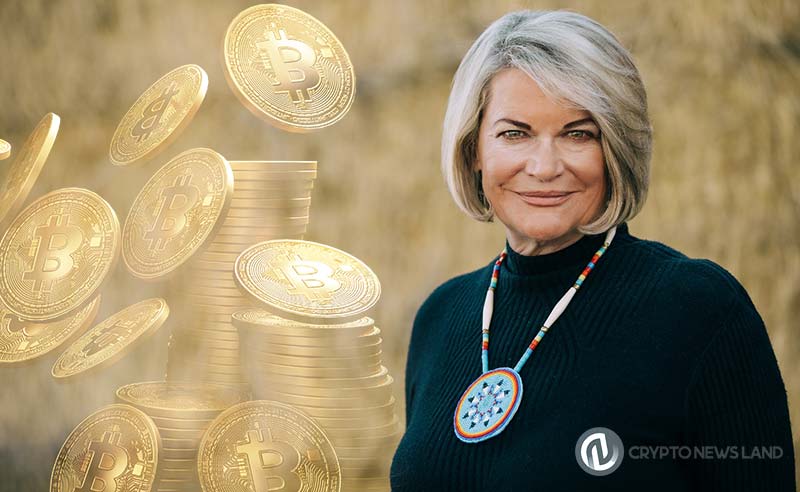- Lummis aims for a Strategic Bitcoin Reserve by 2025 to boost U.S. financial stability and reduce national debt.
- The 2025 Bitcoin Act seeks to secure 1 million Bitcoins, transforming U.S. financial strategy long-term.
- Lummis’ vision for 2025 includes clear crypto regulations, with David Sacks leading digital asset policy.
Wyoming Senator Cynthia Lummis has marked 2025 as a pivotal year for Bitcoin and the crypto sector. A series of proposed policies and government appointments could drive substantial change in U.S. digital asset regulation and strategy.
Lummis expressed optimism over the appointment of David Sacks as Crypto Czar, praising the potential for pro-digital asset legislation. As part of this vision, the Senator has been working on the Bitcoin Act, aimed at securing a national Bitcoin reserve.
Strategic Bitcoin Reserve Proposal
The Bitcoin Act suggests establishing a Strategic Bitcoin Reserve aimed at storing up to 1 million Bitcoins. This effort seeks to decrease U.S. debt by utilizing Bitcoin as a long-term asset. The reserve would be funded through reallocating existing Federal Reserve assets like bonds and gold, avoiding new debt creation.
Under the proposal, these Bitcoin holdings would be securely managed and held for at least 20 years. This will foster a stable and transparent reserve system. The reserve would include Bitcoin seized from criminal cases, which is already valued at around $21 billion. This could further enhance U.S. economic stability and provide a hedge against inflation.
State-Level Developments
As the federal government advances the Bitcoin Act, state governments are likewise seeking methods to incorporate Bitcoin into their financial plans. For instance, Ohio has tabled a bill to permit state treasury investments in Bitcoin. Pennsylvania is also suggesting that up to 10% of its reserves be allocated to the cryptocurrency.
Potential Economic Impacts
The creation of a Strategic Bitcoin Reserve might greatly influence the financial security of the U.S. It may assist in decreasing national debt, shielding against inflation, and strengthening the dollar’s status worldwide.
This action might also strengthen the U.S.’s economic influence over other global powers like China and Russia. Nevertheless, issues like legal barriers and market instability persist. The next few years will be pivotal in figuring out if these bold plans for Bitcoin integration can actually materialize.
